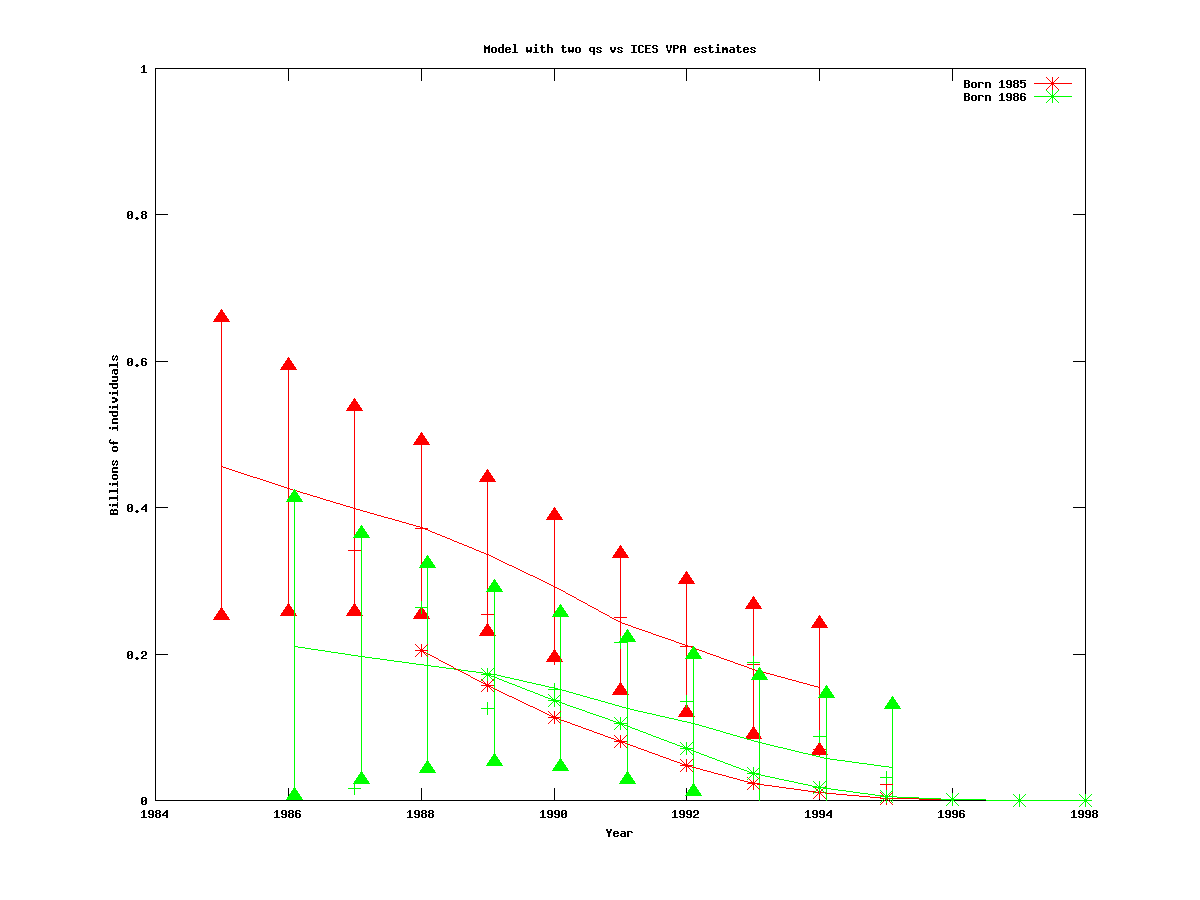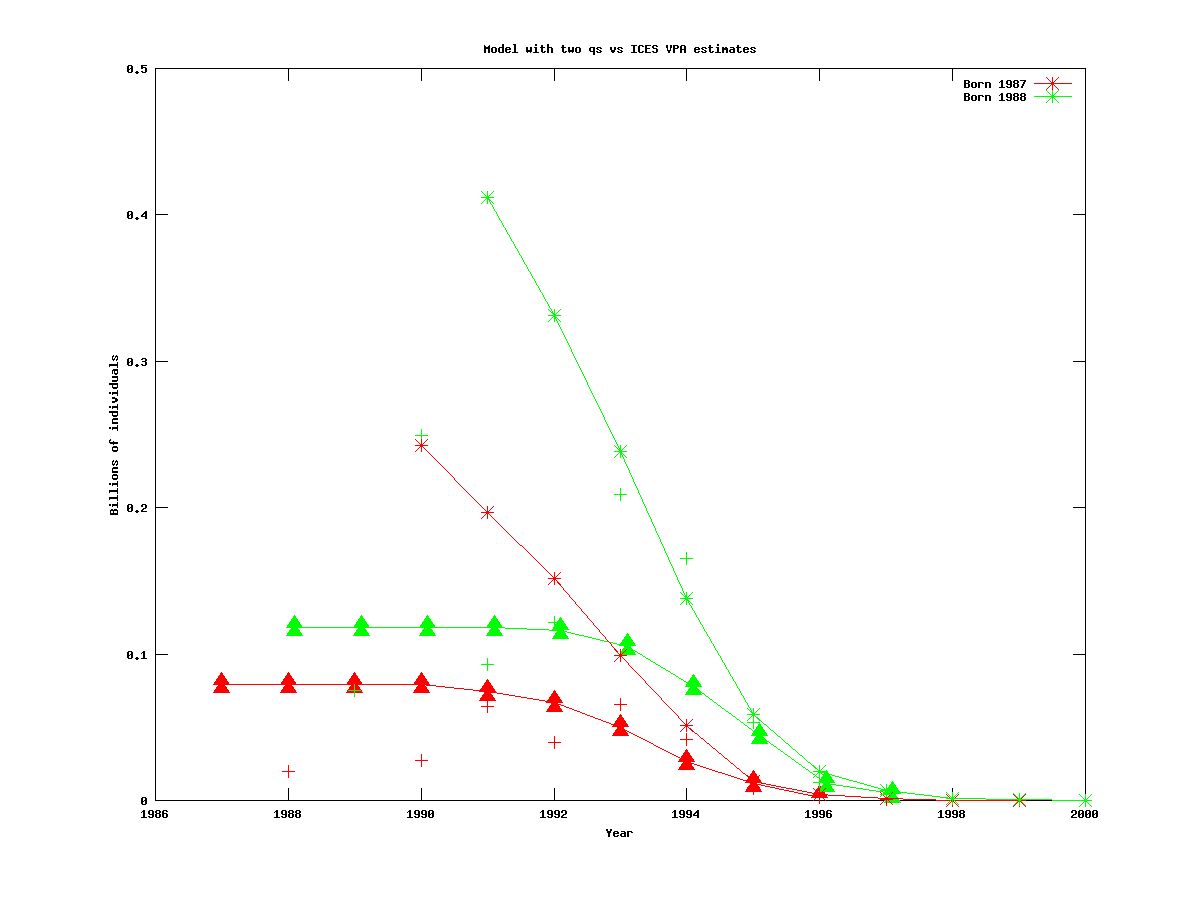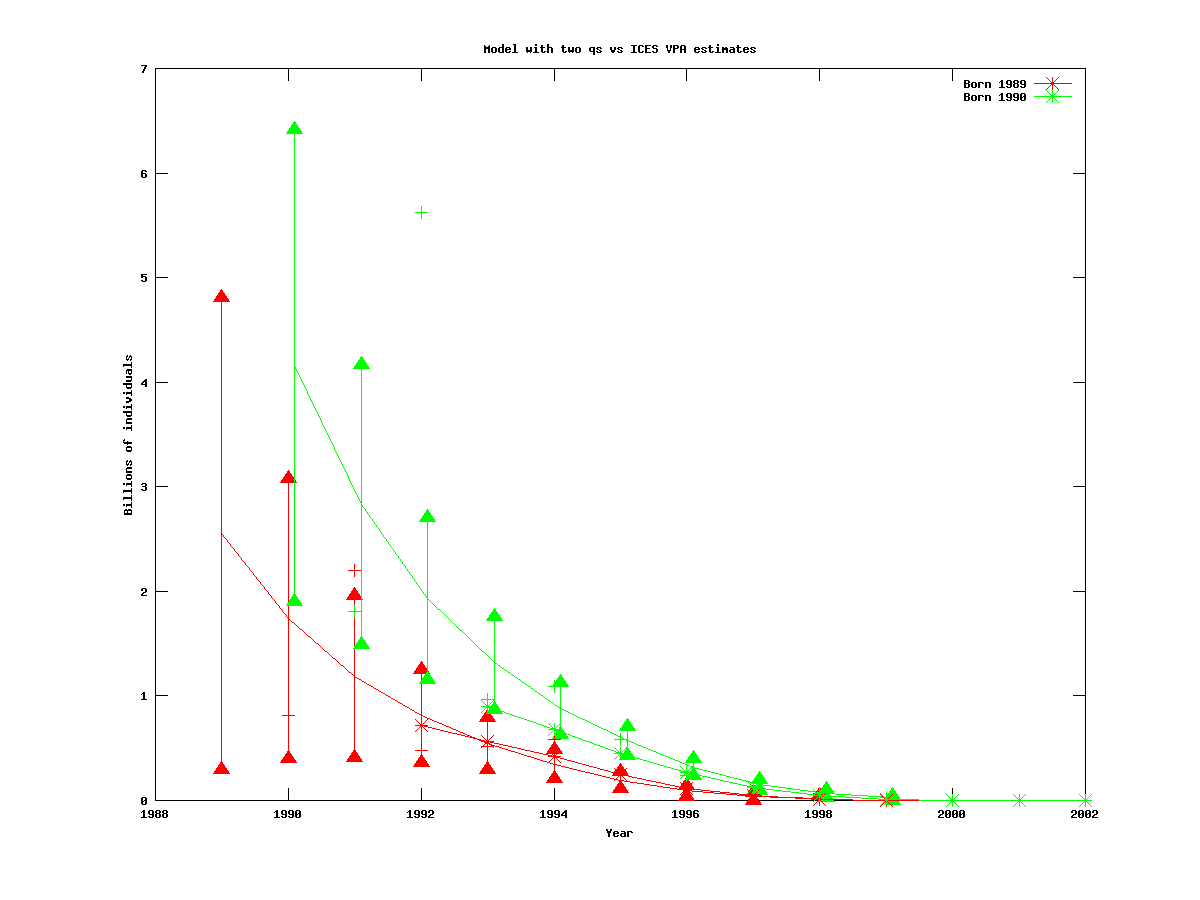NOTE: This section is largely obsolete!

Models with uncertainties in the catch data
It is unrealistic to assume that the catch data avaible from the ICES AFWG reports are without error. For this reason we make the following enhancement to the model:
Replace the recurrence relation:
| Ni,t | = | (Ni,t-1 - Ci,t-1)e-M |
|---|
with:
| Ni,t | = | (Ni,t-1-Ci,t-1 exp[usu-0.5su2] )e-M |
|---|
where u is a latent variable vector with one component for each component of the catch data. It has expectation 0 , and standard deviation 1. The non-latent parameter su controls the standard deviation of the catch itself.

Although the population trajectories are not too different from the VPA trajectories for the first and third plot, the parameter su is at its lower bound. For the second plot the mortality is at its lower bound. Only two cohorts are present per run, since otherwise the ADMB fails to converge. ADMB also fails to converge for the cohorts born in 1991/1992, and 1993/1994, suggesting that further control of the catchability must be enforced somehow.


